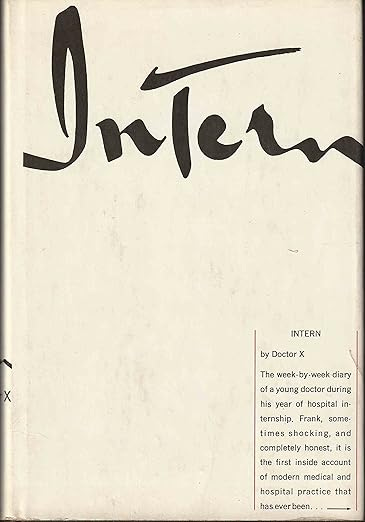Omaha, Goalie Gloves, and Matt Schilling: A Small Moment That Lasted 35 Years
Three books can change your Thursday. One book can change your world.
Hello,
This past week, I found myself in Omaha, Nebraska, surrounded by some of the people I love most—my son, my father, my nephew, my childhood friend, and the 14U baseball team I coach, the Salt Lake Stars.
We were there for the Omaha Slumpbuster, one of the largest youth baseball tournaments in the country, held in tandem with the College World Series.
Last year, we came as 13-year-olds and somehow left with a championship trophy. This year, we came back to see if lightning might strike twice.
It did.
In the final inning of the title game, with one out and the score tied, one of our players delivered a walk-off hit. The bench emptied. The boys screamed. Parents wept. And I stood there in the dugout, watching it all—knowing this was a moment they’d carry for the rest of their lives.
It was one of the most joyful, unforgettable wins I’ve ever been part of.
And yet, just a day earlier, something else happened—something quieter, but equally lasting.
I was walking down the street with my father when I saw someone in the corner of my eye. A face from another life. A flash of familiarity sharpened by time.
Matt Schilling.
I hadn’t seen him in over 35 years.
When I was a freshman at Hightstown High School, Matt was a senior—and a legend. Varsity goalkeeper in soccer. Wing in ice hockey. Infielder in baseball. He wasn’t just good—he was that guy. Fast, fearless, clutch. The kind of athlete that other kids talked about in awe.
But what made Matt different wasn’t just what he did on the field. It was how he carried himself off of it.
He noticed people. He encouraged the younger players. He gave feedback, not just high-fives. He made you feel seen when you didn’t even know you were looking to be seen. He was someone you wanted to be like—not just in how he played, but in how he made others feel.
I followed in his footsteps. When he graduated, I became the varsity goalkeeper. I played wing in ice hockey. I manned the infield in baseball. I didn’t reach his level of greatness, but I tried to match his integrity.
And now, there we were—two former teammates, standing on a sidewalk in Omaha. Both of us coaches. Both of us older, grayer, balder, a little heavier around the edges, but somehow, instantly back in rhythm.
Matt was there as the assistant coach of Coastal Carolina’s baseball team—a team that has swept through Omaha and is now preparing for the championship round.
We started talking—about coaching, about family, about the weird and beautiful way baseball ties time together. Then Matt said something I didn’t expect.
“You remember that game during my senior year? The state tournament? I needed a new pair of goalie gloves. You ran to my house and brought me the backup pair.”
And just like that, the memory came flooding back.
He had asked me—me, a freshman—to run to his house and grab the gloves. It felt like the most important job in the world. I sprinted like the game depended on it. Because for a few minutes, it did.
And somehow, that was the memory he carried all these years.
Not a win. Not a stat. Not a goal.
But a favor.
A moment of trust.
A simple gesture that mattered to him, enough to hold onto for more than three decades.
I had forgotten it entirely. But he hadn’t.
And it made me think—about presence, about the stories we carry, and the quiet ways we matter to one another.
We don’t always get to choose which moments will stick with others.
But we do get to choose how we show up in them.
And sometimes, the smallest things—a run across town, a pair of gloves, the feeling of being needed—can echo longer than we ever expect.
That day, Matt handed me a job. Small on the surface, but huge to me. And in doing so, he gave me something far more powerful: the chance to feel useful.
I carried his gloves.
He carried that moment.
Now, I carry this story.
So the next time you’re given a small task, a quiet role, a behind-the-scenes moment—
Do it well.
Be dependable. Be kind. Be someone who runs hard for someone else.
Because you never know which moments will echo for years.
And sometimes, the glove you return becomes the memory that endures.
Welcome to this week’s Three Book Thursday.
P.S. Thank you Aunt Edie for the idea to write this story.
1. Memoir
The Motorcycle Diaries: Notes on a Latin American Journey
Summary
There was a stretch of time—late in college and into medical school—when I fell into a full-on Che Guevara phase. Not the political iconography, but the complexity of the man. The contradictions. The intensity. The journey. I didn’t know what to make of him entirely, but I was drawn to the story. Especially this part of it—before the speeches, before the revolution, before the legend.
The Motorcycle Diaries is that story. A raw, beautifully written account of a young Ernesto Guevara, a 23-year-old medical student who set off with a friend on a motorcycle journey across Latin America. He wasn’t Che yet—he was just a curious kid with a stethoscope, a journal, and a desire to see what was out there.
And what he saw changed everything.
Through dusty roads, remote villages, mining towns, leper colonies, and border crossings, he witnessed deep poverty, injustice, and resilience. He met people who had nothing but still offered everything. He began to understand suffering not as a clinical case, but as a human reality—something that medicine alone couldn’t fix. And as the miles added up, so did the questions. About inequality. About purpose. About what it means to truly live with—and for—others.
This isn’t a manifesto. It’s a coming-of-age story. It’s about awakening. It’s about looking at the world and deciding you can’t unsee it. That maybe the real journey isn’t across a continent—but into a deeper version of yourself.
Reading it reminded me of why we travel. Why we ask hard questions. Why we leave comfort and routine and head toward the unknown—not because it’s easy, but because it’s real.
Yes, Che is a complicated figure. He provokes strong opinions. But this book—the early chapter of his life—isn’t about hero worship. It’s about paying attention. It’s about letting the world change you so you can figure out how to change it back.
There’s also a movie version of The Motorcycle Diaries–it’s worth the watch. It captures the heart of the story—the beauty, the tension, the transformation. But the book is where you feel it most. The pages are full of dust and hunger and laughter and fire.
And if you’re in a season of searching—if you’re questioning your next step or wondering how to make your life matter—this might be the book you need right now.
Because sometimes, it’s not the path that changes. It’s you.
Favorite Quote, Insight, & Principle
Quote: “Solidarity is learned through footsteps, not words.”
Insight: Each time I take a step, I am closer to a different version of myself.
Principle: Let the world change you, and you can change the world
Author: Ernesto Che Guevara
Themes: Memoir
2. History
Beethoven's Hair: An Extraordinary Historical Odyssey and a Scientific Mystery Solved
Summary
Some stories find you when you’re not looking. Beethoven’s Hair was one of those for me.
It starts with a lock of hair—cut from Beethoven’s head after his death in 1827. An object that, on its surface, seems small. Simple. A relic for a display case. But what unfolds in Russell Martin’s hands is anything but small. It’s sweeping, layered, unexpected. This book is about history, yes—but it’s also about legacy, science, pain, and the enduring mysteries that live inside genius.
The hair changes hands. It crosses borders. It survives war. It becomes a clue, a key, a question mark. And as it moves through time—from Beethoven’s Vienna to Nazi-occupied Europe to a modern-day laboratory—the story expands. Through careful analysis, researchers uncover shocking medical insight that reframes how we understand Beethoven’s struggles—his deafness, his torment, and perhaps even his temperament.
But what makes this book so powerful isn’t just the science or the sleuthing. It’s what it reminds us about the human condition.
That greatness often coexists with suffering.
That what we leave behind may one day answer questions we never thought to ask.
And that sometimes, in tracing the physical remnants of a life, we find emotional truths that speak across centuries.
This is a book about Beethoven—but it’s also about us. About how we search for meaning in artifacts. About how pain and brilliance aren’t mutually exclusive. About how something as fragile as a strand of hair can carry stories that outlast empires.
If you’ve ever wondered how history breathes—how art, illness, and identity weave together in one remarkable life—Beethoven’s Hair will leave a mark.
It did for me.
Favorite Quote, Insight, & Principle
Quote: “History isn’t just in books—it’s alive in fragments, waiting to speak.”
Insight: The past isn’t distant; it’s carried forward in strands, echoes, and questions.
Principle: Unraveling history isn’t only about the past—it’s about shaping our future understanding of ourselves.
Author: Russell Martin
Themes: History, Music
3. Patient Care
Intern
Summary
Intern by Doctor X is the kind of book that punches you in the gut—quietly, precisely, and without warning.
It’s raw. Stark. Unapologetically honest.
Written under a pseudonym in the 1960s, Intern chronicles one year in the life of a young medical intern at a major urban hospital. No polish. No heroics. Just the unfiltered truth of what it feels like to step into the white coat for the first time, exhausted, terrified, and underprepared.
Reading it, I was taken back to my own days as a trainee—when your name barely registers, your judgment is shaky at best, and your confidence swings wildly between hope and collapse. The book doesn’t try to make you feel better about those days. It just shows them to you. Night shifts that blur into each other. Patients who die unexpectedly. Moments of brilliance and moments of shame. It’s all here.
But what makes Intern linger isn’t just the medicine. It’s the humanity.
Doctor X writes with a detachment that somehow heightens the emotion. You feel the toll—the physical decay, the emotional numbness, the ethical erosion that creeps in when you’re too tired to care and too afraid to admit it. And yet, beneath that exhaustion, there’s a pulse of something real: the desire to serve. To help. To get it right, even when everything’s going wrong.
This book is a reminder that behind every doctor is a student who barely survived their training. Who was once overwhelmed by the weight of it all. And who learned, sometimes the hard way, how to live with the consequences of their choices.
For anyone in medicine, this book is a mirror. For those outside of it, it’s a rare invitation inside.
And for all of us—doctors, leaders, parents, creators—it’s a meditation on what it means to hold responsibility before you feel ready. To act in the midst of fear. To grow not by getting it right, but by showing up again after getting it wrong.
Intern doesn’t wrap things up neatly. That’s not its job.
Its job is to show us what it means to be human in a place where perfection is demanded but impossible.
And somehow, that’s what makes it so inspiring.
Author: Doctor X
Themes: Patient care, Residency training, Medical school
We think it’s the big moments that define us—the wins, the speeches, the breakthroughs. But often, it’s the unnoticed ones that leave the deepest mark.
A high school freshman running a pair of goalie gloves across town. A medical student waking up to the pain that numbers can’t explain. A strand of hair revealing a truth no one saw coming. A dusty road in Latin America that shifts a young man’s view of the world forever.
What ties them together isn’t grandeur. It’s presence. Being there, fully. Doing the thing that seems small but matters. Staying curious when it would be easier to look away. Choosing to serve even when you’re unsure of yourself.
This week’s stories remind us that significance doesn’t announce itself in the moment. It shows up later—in memory, in meaning, in the way someone tells your story years down the road.
So keep showing up. Pay attention. Do the quiet thing well.
Because one day, it might be the only part they remember. And it just might be the part that mattered most.
Always ❤️📚💡
Three Book Thursday is free, but there are many costs to create these posts each week. So, can you do me a favor?
If you find value here, please support the newsletter.
Please share Three Book Thursday with a friend, college, family member, or post it to your socials. I’m working hard to grow this audience, but let’s be honest—you’re probably better at it than I am.
Or, do both!






